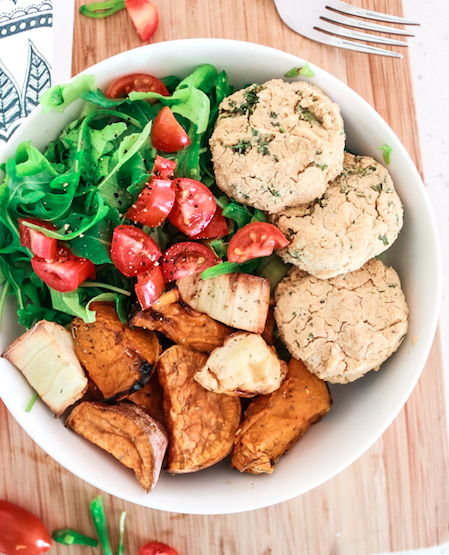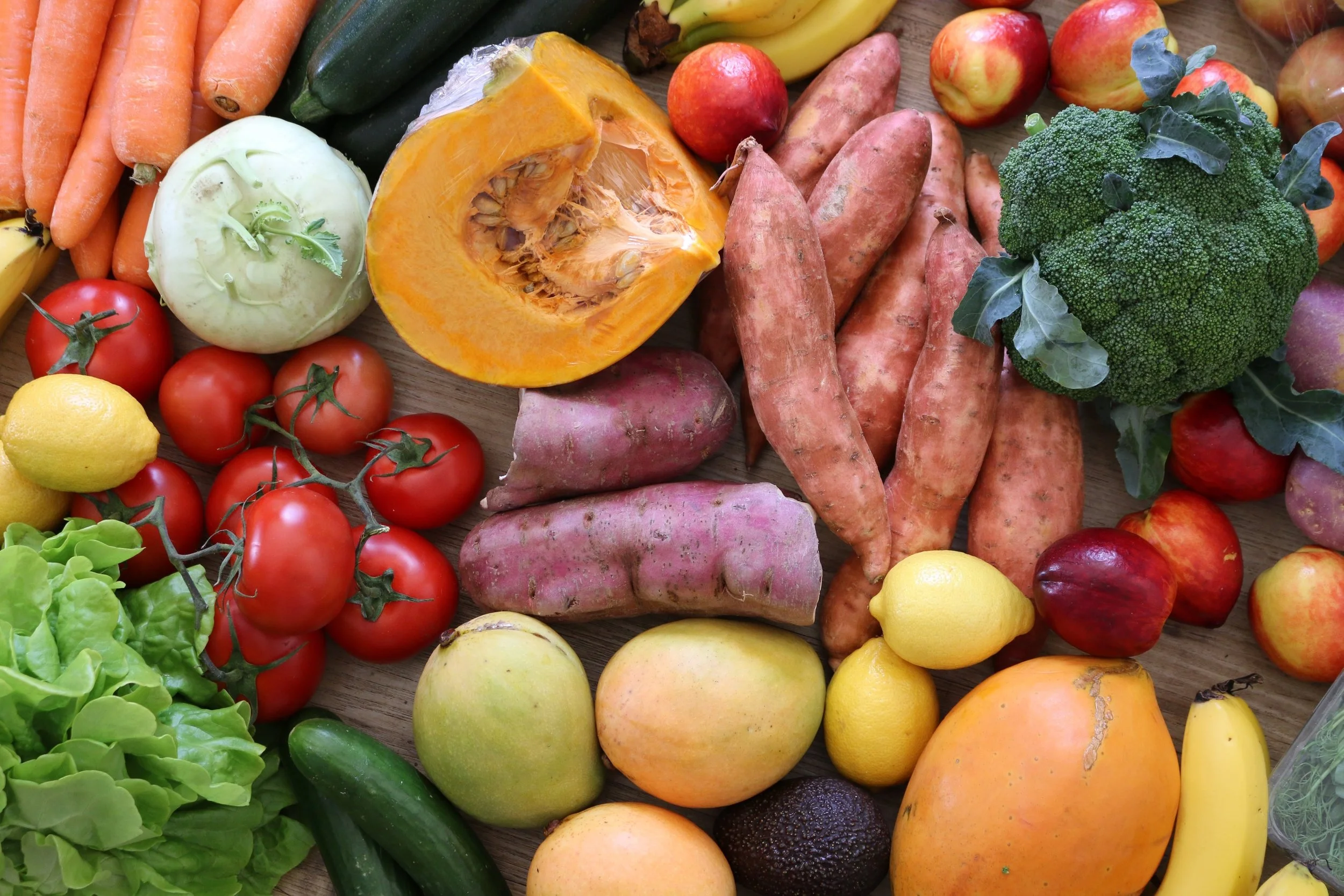Meeting Your Calcium Needs Eating Plant-based
One of the biggest concerns many people have about switching to a plant based or dairy free diet is getting enough calcium. And a valid concern to have, because calcium is incredibly important! But you’ll be pleased to know that there are plenty of calcium-rich plant foods out there to enjoy and provide our bodies with all they need of this important mineral. Read on!
Why do we need calcium?
Calcium is an essential nutrient for human health and also the most abundant mineral found in the body.
It makes up a key part of bones and teeth.
It plays a role in muscle contraction and maintaining a regular heartbeat.
It’s needed for the transmission of nerve impulses.
It’s important for blood clotting.
It’s involved in hormone release.
Since a young age we’ve been told that we need to drink our dairy milk for healthy, strong bones and to meet our daily calcium requirements. And rightly so that calcium is emphasised because having strong bones is incredibly important for a long, healthy life and protecting us from falls, fractures and osteoporosis in the future. Ensuring we are meeting our calcium needs is important for bone mineral density, especially whilst we are still growing, to help us reach our peak bone mass in our early twenties. After this, our bone mass slowly starts to decline with age, but ensuring adequate calcium intake can slow this decline and preserve bone mass.
Do vegans have weaker bones?
Some studies do in fact show that vegans have lower bone mineral density and a higher risk of fractures. HOWEVER, this is only the case when they also have lower calcium intakes and the risk is reduced back to equal rates as everyone else when calcium intakes are adequate. Yay!
Follow the tips below to make sure you are meeting your calcium needs on a plant based diet.
How much calcium do we need?
The amount of calcium recommended per day by the Dietary Guidelines is dependent on your life stage and age.
For males, aged 14-18 or 70+, 1300mg per day and aged 19-70, 1000mg per day.
For females, aged 14-18 or 50+, 1300mg per day and aged 19-50, 1000mg per day.
All whole plant foods contain small amounts of calcium which will contribute to your daily total. But there are some plant foods which are especially high in calcium and great to include in your diet on a. daily basis.
Examples of plant-based calcium sources:
Fortified plant milks (e.g. almond, soy, rice, oat milks). Read the label and ensure over 100mg calcium per 100ml serve.
Most tofu (firm or soft) are set with calcium sulphate. Again, read the label to make sure and look for this on the ingredient list, also often written as firming agent (516).
Blackstrap molasses. Great to use in baking, add to smoothies or oats.
Chickpeas and white beans. Other beans also contain calcium but these two are the highest!
Dark leafy green veggies, such as kale, broccoli, bok choy and pak choi, chard and collards. Spinach is not a great calcium source due to it’s high oxalate content which inhibits calcium absorption (this doesn't mean you shouldn’t eat it, as always variety is key!!).
Dried figs or apricots.
Tahini, sesame seeds, chia and almonds or almond butter. Choose unhulled, skin-on varieties!
Whole grains such as quinoa, teff and oats.
Other factors to consider:
In order to maximise your calcium absorption, there are a few things you can consider. Oxalates and phytates (or phytic acid) are two compounds found in many plant foods which bind to calcium and block it’s absorption. Phytates are found mainly in nuts, seeds, legumes and whole grains, and these can be reduced by soaking, sprouting or cooking these foods, allowing our bodies to absorb more calcium from them. Oxalates are found in spinach, rhubarb, almonds, peanuts and cashews, among other foods, and whilst this does mean calcium absorption is reduced, if you keep your diet varied with plenty of different plant based calcium sources (rather than overloading on these foods!), you should be absolutely fine!
Alongside this, other factors which can affect calcium absorption include our vitamin D status, certain medications, caffeine and alcohol, and smoking. I would recommend not drinking coffee or black tea with your meals for this reason.
Strong and healthy bones also rely on two other factors alongside getting enough calcium. These are: making sure you get enough Vitamin D from the sun (or a supplement if this isn’t possible), which helps the absorption and balance of calcium in the body, and also exercising regularly. Exercise puts healthy stress on the bones, promoting the rebuilding of bone and in turn making them stronger!
Do I need a supplement?
It’s always going to be best to meet your nutritional needs through your diet, however a calcium supplement may be needed for those who find this to be challenge. Calcium supplements have much poorer absorption than the calcium found in food, therefore higher doses are required. I recommend speaking to a nutrition professional to discuss whether supplementing is necessary and which supplement and dosage will be best for you.
A few meal and snack ideas to increase your calcium intake:
Oatmeal cooked in fortified plant milk, topped with fruit, almond butter + a drizzle of blackstrap molasses.
Snack on almonds + dried figs or apricots.
Make bliss balls or muesli bars with tahini, almonds, dried figs, oats + blackstrap molasses.
Smoothies with fortified plant milk, fruit + tahini or almond butter. Silken tofu also makes smoothies super creamy!
Chia pudding with berries (made with fortified plant milk).
Veggie stir fry (add some broccoli, kale and bok choy) with tofu, quinoa + sesame seeds.
White bean, kale + sweet potato soup.
Falafel with hummus + quinoa tabbouleh.
Chickpea, kale + roasted pumpkin salad with a tahini dressing.
I hope you found this post helpful. If you are still concerned about whether or not you are meeting your nutritional needs, please don’t hesitate to reach out to me to book in for a Skype consult!
References:
Calcium in Plant Based Diets, Physicians Committee for Responsible Medicine,
How Not to Die, 2016, Greger, M, Flatiron Books, New York
Dietary calcium: adequacy of a vegetarian diet, American Journal of Clinical Nutrition 1994, Weaver, CM & Plawecki, KL




